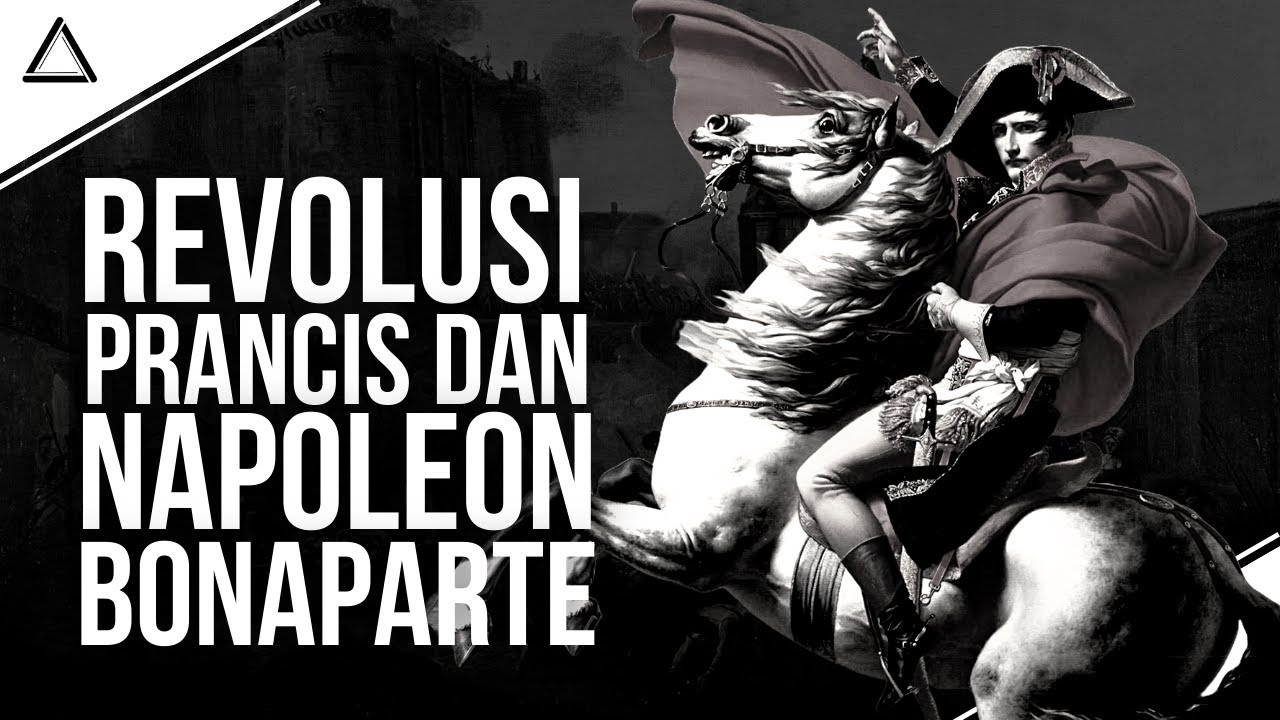Storming the Bastille (July 14, 1789)
Summary
TLDRThe French Revolution, starting in 1789, transformed modern politics by toppling the French monarchy and introducing the ideals of liberty, equality, and human rights. The storming of the Bastille on July 14, 1789, marked a key moment, symbolizing the people's power against tyranny. This event sparked broader revolutionary movements worldwide and emphasized the challenges in establishing enduring democratic governance. The revolution also highlighted the importance of historical memory, as citizens seized not only a prison but control over their own history. The storming of the Bastille remains a powerful symbol of resistance and the fight for democracy.
Takeaways
- 🔄 The French Revolution, starting in 1789, reshaped modern politics in Europe and globally.
- 👑 It ended the French monarchy and introduced the principles of liberty, equality, fraternity, and human rights.
- 🌍 The revolution inspired global movements, from Haiti to Latin America, Russia, and East Asia.
- 🗓️ The storming of the Bastille on July 14, 1789, was a key event that symbolized the people's revolt against monarchy.
- 🍞 Parisians were driven by food shortages, high taxes, and political unrest due to the Estates General's meeting.
- 🪖 King Louis XVI's military presence around Paris incited fear and led Parisians to seize weapons and gunpowder from the Bastille.
- ⚔️ The storming of the Bastille led to significant bloodshed but ultimately sparked revolutionary changes.
- 🎉 Bastille Day became a national holiday in 1880, symbolizing the fall of despotism and the rise of popular rule.
- 🏛️ The Bastille archives, containing key documents, were pillaged, but many were later recovered, symbolizing control over historical memory.
- 📜 The event underscores the importance of remembering and documenting history as part of the democratic process.
Q & A
What was the main political significance of the French Revolution in the 18th century?
-The French Revolution was significant because it introduced ideas of liberty, equality, fraternity, and human and civil rights to modern politics. It also led to the overthrow of the French monarchy and became a model for revolutionary political change worldwide.
What event marked the beginning of the French Revolution?
-The storming of the Bastille on July 14, 1789, marked the beginning of the French Revolution. This event symbolized the people’s uprising against the monarchy and arbitrary rule.
Why were the people of Paris angry in the summer of 1789?
-The people of Paris were angry due to food shortages, heavy taxation to pay off King Louis XVI’s debts, political turmoil caused by the convening of the Estates General, and the dismissal of the popular minister Jacques Necker.
What role did the militarization of Paris play in the storming of the Bastille?
-The concentration of troops around Paris by Louis XVI created a sense of menace and fear, which provoked the Parisians to march to the Hôtel des Invalides for weapons and then to the Bastille for gunpowder, leading to the storming of the prison.
What was the outcome of the storming of the Bastille for the governor and officers inside?
-After the storming of the Bastille, the governor and three of his officers were killed, beheaded by an infuriated crowd, and their heads were paraded through the streets on pikes.
How did the fall of the Bastille impact King Louis XVI?
-The fall of the Bastille forced King Louis XVI to begin making concessions to the people. It also marked the beginning of the revolution that ultimately led to his overthrow and execution.
Why is July 14 known as Bastille Day, and how is it commemorated in France?
-July 14 is known as Bastille Day because it marks the storming of the Bastille in 1789, a pivotal moment in the French Revolution. It was later chosen as France's national holiday in 1880, celebrating the people's fight against despotism.
What does the storming of the Bastille symbolize in the broader context of global political history?
-The storming of the Bastille symbolizes the struggle against authoritarian rule and the pursuit of democracy and justice. It has inspired other revolutionary movements worldwide, such as in Haiti, Latin America, and even recent protests in Cairo and Kyiv.
What were the archives stored in the Bastille, and what happened to them after the prison was stormed?
-The Bastille held important documents from the Parlement de Paris, the King’s household, and the Parisian police. After the storming, these documents were pillaged and scattered, but many were later recovered, forming part of the Bastille archives now held in the Bibliothèque Nationale de France.
What lasting lesson does the storming of the Bastille offer for modern democratic societies?
-The storming of the Bastille teaches that achieving representative democracy and justice is difficult and requires persistent effort. It reminds us of the importance of both challenging visible symbols of authoritarianism and addressing the underlying sources of power in society.
Outlines

Cette section est réservée aux utilisateurs payants. Améliorez votre compte pour accéder à cette section.
Améliorer maintenantMindmap

Cette section est réservée aux utilisateurs payants. Améliorez votre compte pour accéder à cette section.
Améliorer maintenantKeywords

Cette section est réservée aux utilisateurs payants. Améliorez votre compte pour accéder à cette section.
Améliorer maintenantHighlights

Cette section est réservée aux utilisateurs payants. Améliorez votre compte pour accéder à cette section.
Améliorer maintenantTranscripts

Cette section est réservée aux utilisateurs payants. Améliorez votre compte pour accéder à cette section.
Améliorer maintenantVoir Plus de Vidéos Connexes

Sejarah Revolusi Prancis Dan Masa Kepemimpinan Napoleon Bonaparte

French Revolution: Causes, Consequence | Liberty, Equality and Fraternity | UPSC | GS HISTORY

Sejarah Revolusi Perancis Sebagai Penghancur Sistem Monarki Absolut

Sejarah Singkat Revolusi Prancis

A Revolução Francesa | Tudo o que você Precisa Saber

Latar belakang, Proses terjadinya, dan Dampak Revolusi Prancis
5.0 / 5 (0 votes)
